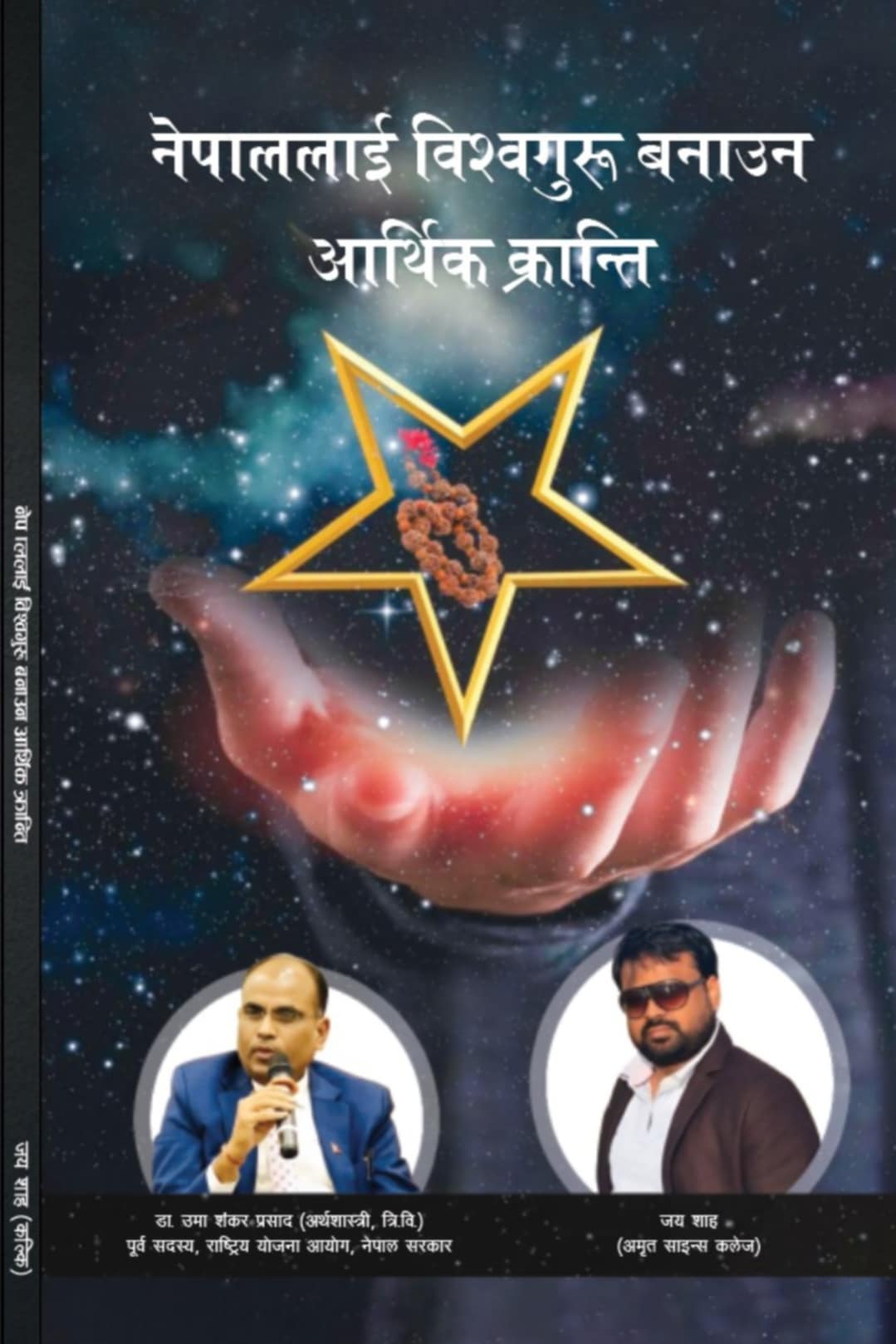The Vision of a Moneyless Society - The Revolutionary Campaign to Make Nepal a World Leader

Author: Jay Sah
Language: Nepali
Genre: Socio-Economic Philosophy
Jay Sah’s नेपाललाई विस्वगुरु बनाउन आर्थिक क्रान्ति (Economic Revolution to Make Nepal a Vishwaguru) is a visionary book that redefines Nepal’s potential role in the global economic system. Drawing heavily from the principles and ideas of The Kalkiist Manifesto, this book outlines a transformative economic model aimed at establishing Nepal as a "Vishwaguru" or a global leader. It introduces the concept of a "Democratic Holistic Economy," challenging conventional systems like capitalism, socialism, and communism, and advocates for an innovative paradigm known as "Kalkiism" or "Karmaism." Central to this philosophy is the ambitious idea of a moneyless and cashless society where education, healthcare, and legal services are offered free of cost to the public.
The author identifies key flaws in existing economic systems: dependence on money, profit-centric culture, and weak governance. To address these, Sah envisions a transactional society based on time, contribution, and service, aiming to eradicate poverty, inequality, and corruption in Nepal.
The book proposes a Karma-Based Transaction System (KTS) as a replacement for monetary systems, fostering equitable exchanges based on shared responsibilities and resources. Sah integrates practical innovations such as the ATMT (Anytime Money Transfer) device and Smart Roads into this vision, showcasing how modern technology can modernize Nepal’s infrastructure and increase efficiency.
Emphasizing cultural and spiritual leadership, the book highlights Nepal’s historical and spiritual significance as a cornerstone for global reform. It further advocates for environmentally friendly policies and sustainable development to address pressing global challenges like climate change.
Sah’s book successfully contextualizes its ideas for Nepal, addressing its unique challenges and opportunities. It resonates deeply with Nepali aspirations for economic independence and global recognition. However, some of the proposals, such as a 100% cashless economy, appear overly ambitious given Nepal’s current technological and infrastructural limitations. Moreover, while the book outlines a grand vision, it lacks a detailed, step-by-step implementation strategy, which may leave readers uncertain about how to translate these ideas into action. Additionally, its philosophical depth might be challenging for readers unfamiliar with The Kalkiist Manifesto.
Despite these limitations, नेपाललाई विस्वगुरु बनाउन आर्थिक क्रान्ति serves as a bold and inspirational call to action. It is a significant contribution to the discourse on Nepal’s economic future, offering thought-provoking insights for policymakers, economists, and socially conscious citizens.
Jay Sah’s revolutionary ideas have the potential to guide Nepal toward sustainable development, cultural enlightenment, and economic transformation, paving the way for global leadership. This book is not just a blueprint for change but also a testament to Nepal’s untapped potential and its journey toward becoming a true Vishwaguru.





![From Kathmandu to the World: How Excel Students Are Winning Big [Admission Open]](https://nepalaaja.com/img/70194/medium/excel-college-info-eng-nep-2342.jpg)
